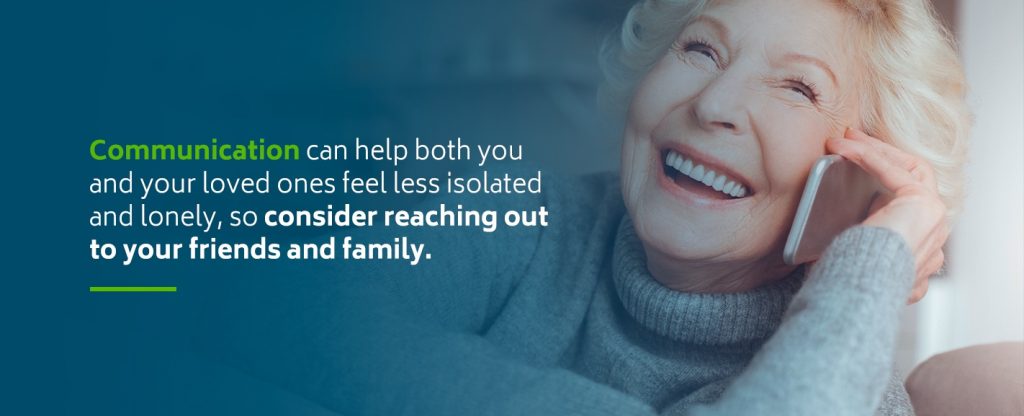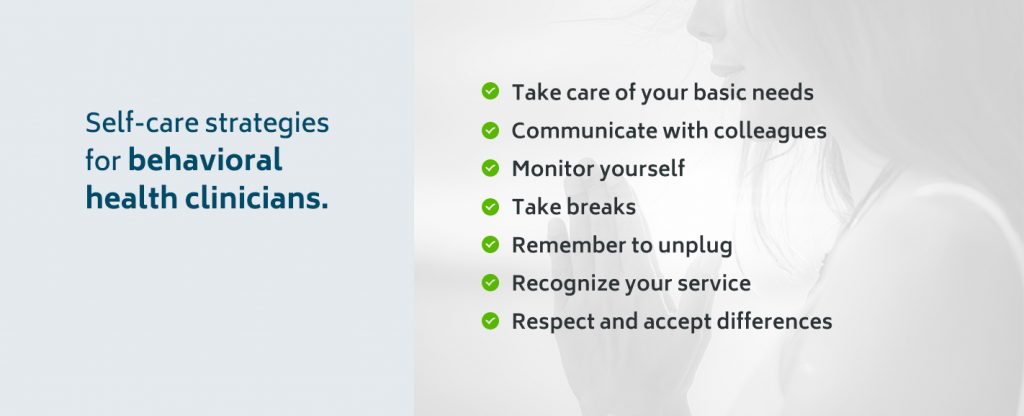COVID-19 and Your Therapy Practice
In this time of the coronavirus pandemic, the focus is on general health care, but behavioral health is another crucial field that may be struggling during this unprecedented time. Whether you work in private practice or in a residential or inpatient setting, COVID-19 has likely impacted your therapy practice.
COVID-19 Impact on EHR
COVID-19 may be one of the most significant stress tests our electronic health record systems will undergo. Though our EHR systems may be struggling under COVID-19, the impact of the pandemic may also push us to develop a more effective and efficient system.
COVID-19 and EHR
COVID-19 has already begun shedding light on some of the existing problems and weaknesses in our society and health care system, and has illuminated the various sticking points with our inflexible, overly complex EHR systems. Some of the struggles behavioral clinicians may be facing with EHR include functionality trouble, limits on data-sharing capabilities and agility issues.
Functionality Issues With EHR
Rather than provide top-level patient care, the function of EHR systems is to track and bill procedures. Because of the structure of EHR, a behavioral health clinician may struggle to obtain a clear picture of a patient. A patient’s EHR consists of multiple tabs, with information divided under the problem list, imaging, medications and more. It can be challenging for a behavioral health clinician to form a comprehensive view of a patient and their needs.
Limits on Data-Sharing Capabilities
Sharing data across platforms is crucial, particularly during the outbreak of a disease. Data about patients needs to flow freely, but without compromising privacy and ethical care practices. One of the most significant gaps we face in our flow of health information within the U.S. is the capability of our health system to count and track deaths — a weakness COVID-19 has exposed.
Agility Issues With EHR
COVID-19 has highlighted that EHR tends to be a slow system that doesn’t adapt quickly to emerging demands. It has become particularly concerning during this pandemic, due to cyber-threats and the pressure on EHR to evolve rapidly. Because EHR is so complex, upgrades are slow and costly. For these reasons, many behavioral clinicians are turning to software that can make documentation easier.
Even though the pandemic is putting a strain on EHR, this could push the U.S. to identify weaknesses in EHR and make improvements.
Tips for Mental Health Clinicians During COVID-19
We know mental health and COVID-19 have become significant concerns worldwide as people self-isolate and cope with feelings of anxiety about getting sick, the safety of their loved ones and what the future holds. As a behavioral health clinician, you may be worried about the effect of COVID-19 on behavioral health.
Below are some COVID-19 tips for therapists.
1. Support Your Loved Ones and Patients
One of the pivotal concerns behavioral health professionals may have during this time is how to support patients and loved ones. We’ve compiled a few tips to help you support those around you.
Supporting your loved ones can be as simple as staying in touch. Communication can help both you and your loved ones feel less isolated and lonely, so consider reaching out to your friends and family via:
- Phone calls
- Video chatting
- Text messages
- Social media
- Emails
You can also help friends and relatives who are unable or unwilling to leave their homes stock up on medications, canned foods and other nonperishable food items.
To support your patients and lower their feelings of isolation and anxiety, you can encourage them to connect with the people they care about most. Reassure patients with disabilities and older adults that feeling distressed is common during a pandemic. Encourage them to ask for help when they need it.
2. Take Care of Yourself
As a mental health clinician, you may be focusing more on others during COVID-19 and neglecting your self-care needs. If you are a behavioral health professional, we encourage you to carve out the time to take care of yourself during this pandemic. The following are a few self-care strategies for behavioral health clinicians.
- Take care of your basic needs: Remember to eat, drink, exercise and sleep. You can’t pour from an empty cup. If you don’t fulfill your fundamental needs, you’ll compromise your ability to provide your patients with high-quality care. Overlooking self-care can leave you feeling lethargic and stressed. For your mental well-being and your ability to perform your job effectively, don’t forget to look after yourself first.
- Communicate with colleagues: Communicate with your colleagues, giving and receiving support so you can avoid feelings of anxiety and isolation. Strive to also support each other by monitoring stress levels and workload.
- Monitor yourself: Monitor your feelings and symptoms, such as stress, insomnia and intrusive memories. Speak with a supervisor or peer for support or seek professional help.
- Take breaks: Part of taking care of yourself is ensuring that you take breaks when you need them. Whenever you can, step away from patient care by engaging in relaxing or fun activities. Listen to music, take a walk, read a book, practice relaxation and meditation techniques, write in a journal or talk to friends. By allowing yourself to rest, you can provide the proper care to your patients.
- Remember to unplug: While staying updated on relevant information and news reports is a responsible thing to do, it’s also crucial to remember to unplug. A steady diet of negative headlines can increase your feelings of anxiety and stress and adversely impact your overall well-being.
- Recognize your service: Remind yourself and your colleagues about the valuable service you are providing to patients.
- Respect and accept differences: Respect and accept the differences that you, your co-workers and patients may have in coping with the pandemic. For example, maybe you need to talk to colleagues and loved ones during this time, while one of your peers needs to be alone.
The effect of COVID-19 on behavioral health can adversely impact clinicians, but following these tips can help you navigate this difficult time.
COVID-19 Impacts on Telehealth in Behavioral Health
What is the relationship between teletherapy and COVID-19? The Telehealth Services During Certain Emergency Periods Act of 2020 waives geographic restrictions for mental health services during this pandemic. Behavioral health professionals can also use videoconferencing to see their patients, so people don’t have to travel outside their homes to receive care.
Fortunately for behavioral health clinicians, a telehealth encounter and an in-person visit use the same CPT codes.
Start Your Free Trial From ICANotes
Are you looking to make your job easier in the face of COVID-19 by reducing your documentation burden and getting paid faster? If you are a behavioral health clinician struggling with documentation as a result of COVID-19, contact us at ICANotes for support, or request a free trial today.
Sources
- https://www.cdc.gov/coronavirus/2019-ncov/daily-life-coping/managing-stress-anxiety.html
- https://nam.edu/initiatives/clinician-resilience-and-well-being/clinician-well-being-strategies-during-covid-19/
- https://www.govtrack.us/congress/bills/116/hr6074/text/enr#link=B_101&nearest=H43DD419ADD2146148B9A7E2F8F456F19



